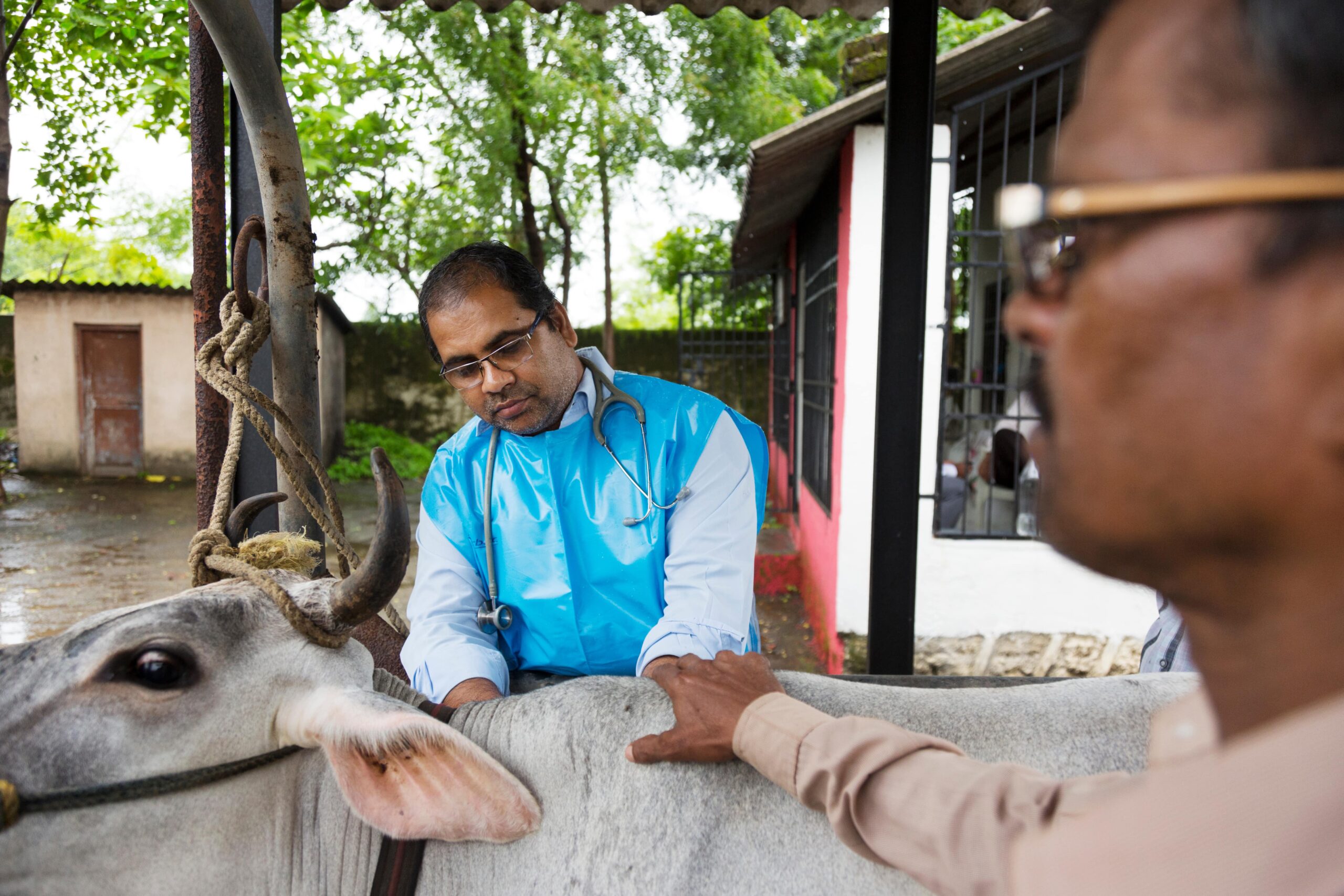The Ethics Behind Vaccines
As a mother of three, I lead an annual family ritual when winter rolls around to get our flu shots, which are vaccines to help protect us from the flu. As a veterinarian, I can tell you that vaccines are used in animals for the same reason: to protect from diseases that cause pain and suffering or to lessen their effects.
I talk more about the reasons we use vaccines in animal agriculture in a new video available below. It is an especially important topic at a time when mixed messages and misinformation are circulating about vaccines.
Vaccinations support an animal’s immune system. At best, they prevent an animal from getting a particular disease. At worst, they lessen the impact of the disease. In any case, vaccinations keep animals healthy and food safe. Are you wondering how on earth vaccinating a farm animal contributes to food safety? Here’s an example: vaccines may decrease the incidence of salmonella in chickens, which can make eggs safer, contributing to a safer food supply.
Another benefit the public may not realize relates to antibiotic use. Vaccines can prevent diseases that might otherwise require antibiotic treatment. So, vaccines play a role in the overall effort to ensure antibiotics are used only when needed. The goal is to keep animals healthy and reduce the need for antibiotics while ensuring antibiotics and vaccines both remain available to responsibly protect animal health and ensure a safe food supply.
Vaccinations over the last century have prevented death and disease in millions of animals, according to the American Veterinary Medical Association. Vaccinations are commonly used to protect pets from highly contagious and deadly diseases such as rabies, parvovirus, distemper, and kennel cough. Livestock and poultry such as chickens, turkeys, pigs and cattle are vaccinated to protect against diseases like rotavirus, E. coli, pinkeye, and infectious bronchitis. Some diseases, such as cattle plague, have been classified as eradicated mainly thanks to vaccines.
Misinformation circulating about vaccines is intended to create fear and anxiety. So-called “anti-vaxxers” blame vaccinations for a wide range of health problems. As a parent and a veterinarian, I find this misinformation unconscionable.
The bottom line is that preventing animal sickness and suffering by administering vaccines is the ethical thing to do. And the public can trust vaccines are safe because they are highly regulated and undergo extensive trials and testing. The USDA Center for Veterinary Biologics, part of the USDA Animal and Plant Health Inspection Service, regulates animal vaccines and sets a high bar for approval.
I would be happy to explain more about the use of vaccines to anyone interested. I encourage the agriculture community – my fellow farmers especially – to do the same. Being open about the purpose and ethics behind the use of vaccinations helps to counter misinformation. The truth is a powerful weapon against falsehoods. That’s why I created the video below about vaccine use – in hopes it helps to tell the story of agriculture. I invite you to view it and share it.
I welcome your thoughts and questions. Please feel free to send me an email at AskDrDorman@pahc.com or call me at 844-288-3623. You can also browse our Resource Library to learn more about this important topic.
See more videos here.

